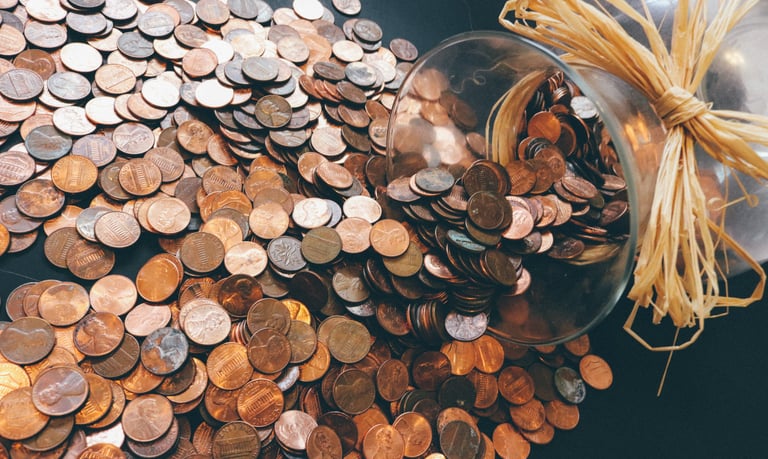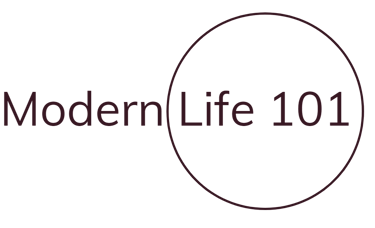Budgeting
MONEY


"Never lose sight of cash flow because it is the lifeblood of business."
- Richard Branson -
The same is true for your personal finances. Everything in your life revolves around whether you have positive or negative cash flow. Positive cash flow generates wealth and riches. Negative cash flow generates debt and financial ruin. And it makes next to no difference how much you earn. You simply need to spend less than you make and invest the remainder wisely. Easier said than done. It’s easy to understand the burdens of being poor, however the key to making it out of poverty is to think long-term. You must be wise with your money in order to invest it, and by investing, grow your wealth. For millions of Americans, it is exceptionally hard to live in a way that is less than you earn, especially if you are disabled, have children, live in an extremely rural area, or have other factors that influence your lack of access to utilities, technology, education, housing and healthcare. For many these burdens are too much to overcome, and that’s why social safety nets are so important. Not everyone CAN work, either temporarily or permanently.
However, assuming you can work a job at reasonable pay for your field, you can also take steps to minimize unnecessary expenses. This is not advocating extreme austerity, just a level-headed and long term view of your personal finances. Chris Hogan's book, Everyday Millionaires, discussed a study of 10,000 millionaires. 69% of these millionaires achieved their status while earning less than $100,000 per year. Don’t fall into the trap of thinking “I’ll start saving money once I start making more money”. Becoming a millionaire doesn’t always mean living modestly, but it’s a good idea to start small. Millionaires recognize the power of time, and begin saving and investing early. Many young people choose to spend money on social and image boosting products and experiences. People of all ages struggle with impulse purchases. This is not to say once again, that you should not have nice things, however its important to keep a birds-eye view of your overall finances when you consider individual purchases.
Have you ever heard of the acronym DINK? It means, Dual Income, No Kids. The implication is that a power-couple has a lot more disposable income and can enjoy a higher quality of life in terms of nice things, vacations, and sleep. However, some of these DINK’s might also be HENRYs: High Earners, Not Rich Yet. Many people feel the need to spend all, or more than all of their income. They worked hard to become well-off, and now they want to reap the rewards. They may also have crushingly high debt or outrageous insurance premiums (as in the case of many doctors) They are the “working rich.” They only appear rich as long as they are working, and if they were to stop working, they’d go broke. People who are paid highly for their time are still trading time for money. Its important to take some of that money and make it work for you. The key to making money work for you is ownership - of property, stocks, businesses and other investments. We are social creatures, and significant part of our decision making process when we spent our money has to do with our relationships with others. If we are insecure and dissatisfied, then we tend to see money as the solution, and the problem is that we don’t have enough. Sometimes this leads to posturing, or a “fake it till you make it” mentality, in which people live beyond their means. Reality is tough, and being around people who give the appearance of being happier, healthier, wealthier than you creates a vicious cycle of insecurity and the need to prove personal worth. It’s been said that comparison is the thief of all joy. Instagram culture feeds narcissism, and the reverse, painful insecurity.
What you own or how much money you make is not connected to happiness or worth; as much as advertisements would have you believe otherwise. You can keep money from ruling over you if you have the right perspective on it. You must realize money is not a measure of your worth, nor the purpose for which you have been put on this earth. You are priceless - you have a value that cannot be quantified. More importantly, no one’s life is “worthless” or without value. A person's life is not more valuable because they have a million dollars, and it is not less valuable because they are broke. Our society links self-worth with net-worth, and nothing could be further from the truth. Similarly, money does not always equate to success. People frequently use the word "success" as a synonym for "money." When you say someone is "successful," that usually means they make a lot of money. In reality, success simply means that you have accomplished the goals you set out for yourself. That is why we will emphasize the importance of planning and critical thinking throughout this book, as achieving personal and financial success means different things to different people.
Be careful with feelings of dissatisfaction and FOMO. (Fear Of Missing Out). These restless impulses rarely lead to a positive outcome. Our addiction to technology and social networks have led to a pervasive culture of unrealistic expectations, deep insecurities and of course, rampant consumerism. In America in particular, as well as the world at large, there is a focus on consumer spending as a measure of a nation’s economic health. Remember, the company always wins when you give them your money in exchange for a product or service, but you are not always benefited by acquiring that product or service. Even the nation or economy at large is not always benefited! For example think of Purdue Pharma’s incredible influence in the raging opioid epidemic; a pharmaceutical company made billions selling their pain-suppressing product at the expense of hundreds of thousands of lives lost and families ruined. Despite the existence of government, which is usually the entity that regulates unchecked greed by imposing regulations for public safety, you must always look out for yourself. Regulation lags behind industry, so it’s up to us to choose safe products and services that will benefit ourselves and our family.
Part of the angst of considering your larger financial picture is that it forces you into some deep truths about your life-style and habits. Since financial planning basically revolves around wealth accumulation for retirement, care in old age, and eventual death, it can be quite sobering to look at the big picture. It’s a splash of cold water to realize that with all your planning, you still have no idea what will occur. Money will not buy you a long life, and you will not be able to take it with you when you die. Even money itself is untrustworthy; it's just paper that has value only because people treat it as if it has value. Many people, from the ancient to the modern, learned this lesson the hard way when their hard money suddenly became less valuable due to larger unforeseen circumstances. Over just the last few decades, there have been numerous examples of countries where money has become worthless, and it takes bags or shopping carts full of cash just to buy a loaf of bread. If you're curious about how bad it can get, look up "hyperinflation."
Don't think the United States is immune to it. Money disappears with some regularity. During the previous major recession in 2008, an estimated $14 trillion in household wealth was lost. That works out to more than $40,000 per person. Likewise we have seen many market downturns and crashes that can intensely devalue the hard-earned dollars you have taken the time and care to invest wisely. The point is simple: do not put your faith in money. "Money is the root of all evil," as the saying goes. In case you're wondering, that old adage does indeed come from the Bible. It is, however, a misquote. The actual quote, from 1 Timothy 6:10, is: "The love of money is the root of all evil." That's an important distinction: it's the desire for money, not the money itself, that's the issue. No one likes to think of themselves as evil, but greed does lead people down some pretty dark paths. Look within yourself, and when you see greed, squash it. Ambition is different; having an urgent drive to better your life is natural, and not intrinsically evil. But as our storytellers are fond of reminding us (think Breaking Bad) the process of becoming the worst version of yourself is a slow and insidious creep, as you gradually become the kind of person who puts profit before people, and who would be willing to trade in ethics and even the people you love - for the love of money. Therefore, wealth accumulation is a balancing act - be careful not to sacrifice living your life in pursuit of a better life.
Devotion to accumulating wealth can result in some pretty horrible consequences. Money can drive you to act unethically. To exploit others. To take reckless risks. Or it can simply cause you to spend your life working extremely hard in order to accumulate treasure that will not last and will not bring you happiness, while ignoring what is most important. Because the love of money is the root of many evils, we must take care to have a life-philosophy that properly values money, but does not overvalue it. Therefore, much of this book is devoted to putting money in its place, by giving you peace of mind that you are spending wisely, saving appropriately, and putting those hard-earned savings to work for you. No matter how much or little you earn, if you have your financial house in order, you will have richer relationships, more robust health, and of course, a better quality of life.
“It takes as much energy to wish as it does to plan.”
- Eleanor Roosevelt -
